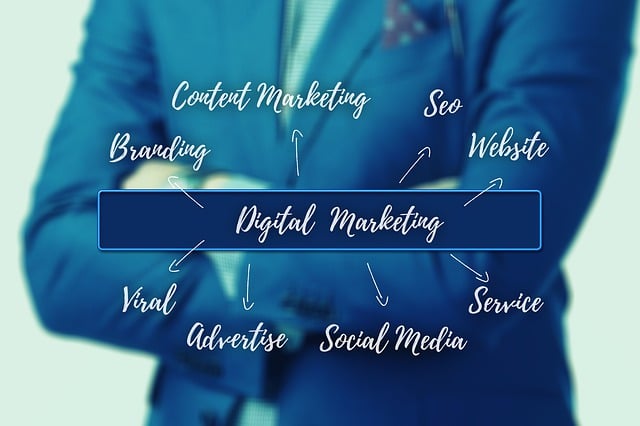
by Justin Mayhall | Jan 14, 2023 | Digital Marketing, General Marketing, Startup
When it comes to hiring a marketing agency, there are several key factors to consider to ensure that you find the right partner for your business. Believe it or not, it actually very easy to open a marketing agency. The barriers to entry are relatively low as there are no actual certifications or other documentation you need to have in order to prove a company actually knows marketing – at all!. Due to this, it’s important ask the right questions and understand what to look for when partnering with an agency. Below are some items to consider if you considering partnering with an outside agency for marketing assistance.
- Experience and expertise: Look for an agency with a track record of success in your industry or with similar businesses to yours. Make sure they have the necessary experience and expertise to handle your specific marketing needs.
- Communication and collaboration: A good marketing agency should be easy to communicate with and willing to collaborate with you to achieve your goals. They should be able to explain their strategies and tactics in a way that is easy to understand and should be open to feedback and input.
- Resources and capabilities: Make sure the agency has the resources and capabilities to deliver the services you need, such as market research, branding, web design, and social media management.
- Results-driven approach: The agency should be focused on delivering measurable results and have a proven methodology for tracking and reporting on the success of their campaigns.
- Flexibility and scalability: Choose an agency that can adapt to your changing needs and can scale their services up or down as required.
- Cost: Consider your budget and make sure the agency’s services and fees align with your financial goals and constraints.
Whether or not you are considering Mayhall Marketing as a partner for your business, by keeping these factors in mind, you can find a marketing agency that is the right fit for your business and can help you achieve your marketing goals.

by Justin Mayhall | Jan 13, 2023 | Business Development, Digital Marketing, General Marketing, Startup
A virtual Chief Marketing Officer (vCMO) is a professional who offers marketing expertise to companies on a contract or project basis. They are typically experienced marketing executives who have held C-level positions in the past, and have a wealth of knowledge and skills that they can bring to your business.
The role of a vCMO is to help companies develop and implement effective marketing strategies. This includes conducting market research, identifying target audiences, and developing campaigns that will reach those audiences. They also work closely with other departments within a company, such as sales and product development, to ensure that all marketing efforts are aligned with overall business goals.
One of the main benefits of using a vCMO is that they can bring a fresh perspective to your marketing efforts. They are not tied to the day-to-day operations of your company and can therefore take a step back and see the bigger picture. This allows them to identify new opportunities and areas for growth that might have been overlooked by in-house marketing teams.
Another advantage of working with a vCMO is that they can provide specialized expertise. Many vCMOs have experience in specific industries or marketing channels, such as digital marketing or event planning. This means that they can provide valuable insights and strategies that are tailored to your business and its unique needs.
One of the most important functions of a vCMO is to create a comprehensive marketing plan. This plan should include a detailed analysis of your target audience, your competition, and your company’s unique selling points. It should also outline specific goals and objectives for your marketing efforts, as well as the tactics and strategies that will be used to achieve them.
A vCMO will also help you to develop a brand strategy which will help you to define your company’s brand and position it in the market place. This will involve creating a consistent message and visual identity that will be used across all marketing channels. This includes developing a brand voice and tone, as well as creating guidelines for the use of your company’s logo and other visual elements.
Aside from branding, a vCMO can also assist you to develop a digital marketing strategy. This will involve identifying the best channels for reaching your target audience, such as social media, email marketing, or search engine optimization. They will also help you to create and execute campaigns that will drive traffic to your website and increase conversions.
Another key function of a vCMO is to help you to measure and analyze the success of your marketing efforts. This includes setting up tracking systems to monitor website traffic, conversion rates, and other metrics. A vCMO can also help you to analyze the data and make adjustments to your marketing strategy as needed.
In addition to these specific functions, a vCMO can also provide a wide range of other services. This can include things like event planning, public relations, and crisis management. They can also help you to develop and manage partnerships with other companies and organizations.
In conclusion, a virtual Chief Marketing Officer (vCMO) is a valuable resource for companies that want to improve their marketing efforts. They can provide specialized expertise, a fresh perspective, and a wealth of knowledge and skills that can help to drive business growth. Whether you are a small startup or a large corporation, working with a vCMO can help you to achieve your marketing goals and achieve success in the marketplace.

by Justin Mayhall | Jan 13, 2023 | Branding, Startup
Establishing a brand can be a daunting task, but it is an essential step in building a successful business. A strong brand can help differentiate your business from competitors, build trust with customers, and increase customer loyalty. In this blog post, we’ll cover the key steps you need to take to establish a brand for your business.
- Define your brand’s purpose and values.
The first step in establishing a brand is to define the purpose and values of your business. What does your business stand for? What values do you want to convey to your customers? This will help you create a brand that is authentic and meaningful to your target audience.
- Conduct market research.
Once you have a clear understanding of your brand’s purpose and values, it’s important to conduct market research to understand your target audience. This will help you identify their needs, preferences, and pain points, and tailor your branding efforts to speak directly to them.
- Develop a unique brand voice and visual identity.
Your brand’s voice and visual identity should be unique and memorable. This includes things like your logo, colors, font, and imagery. These elements should all work together to convey your brand’s personality and values.
- Communicate your brand consistently.
Once you have established your brand’s voice and visual identity, it’s important to communicate them consistently across all touchpoints, including your website, social media, marketing materials, and customer service. This will help to build brand recognition and trust with your target audience.
- Foster customer loyalty.
A key part of establishing a brand is fostering customer loyalty. This can be achieved by providing excellent customer service, consistently delivering high-quality products or services, and building a community of loyal customers through social media and other marketing efforts.
- Continuously evaluate and adapt.
Establishing a brand is an ongoing process, and it’s important to continuously evaluate and adapt your branding efforts as your business grows and evolves. This includes regularly conducting market research and customer surveys, and making changes as necessary to ensure that your brand stays relevant and resonates with your target audience.
In summary, establishing a brand is a crucial step in building a successful business. It involves defining your brand’s purpose and values, conducting market research, developing a unique brand voice and visual identity, communicating your brand consistently, fostering customer loyalty, and continuously evaluating and adapting your branding efforts. By following these steps, you can create a brand that is authentic, meaningful, and resonates with your target audience.




Recent Comments